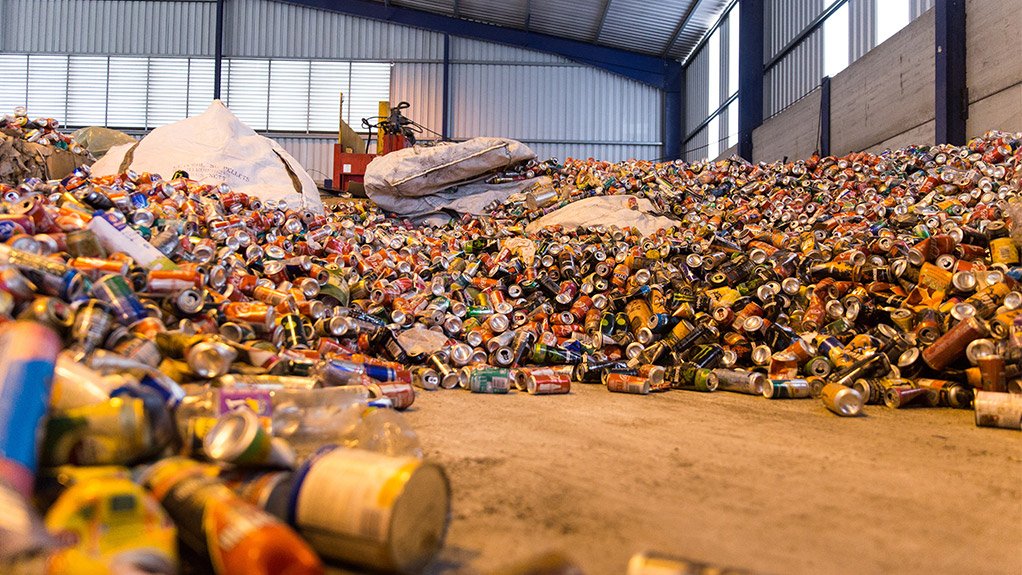A change of attitude towards waste management and recycling is needed to effect a real and positive cultural shift in the sector, but cooperation and willingness to change behaviours is a significant obstacle, says waste management company Interwaste business development and marketing director Kate Stubbs.
“A complete culture change towards recycling and waste management won’t be achieved overnight. However, behavioural change can be achieved when faced with a looming crisis – a lesson learnt through the water crisis in the Western Cape, for example.”
Another lesson learnt from the water crisis, and, perhaps more importantly, is how environmental impacts can be slowed and reversed if behaviour is changed proactively, and before the situation becomes critical, she tells Engineering News.
The geographical location of some communities is part of the challenge of effecting a cultural change towards recycling and waste management, where residential, commercial and industrial areas are not in close proximity to recycling plants, waste management facilities and landfills, she explains.
“The reality is that, unless the process is made simple and convenient and there is a law that mandates recycling, recovery or reuse, participation will be difficult to achieve,” Stubbs declares.
She notes that the ban on lead acid batteries in 2013 and whole waste tyres from landfills essentially mandated all consumers to stop disposing of and recycle these materials, and only then was action was really taken.
In August 2013, the waste classification and management regulations were published under the National Environmental Management: Waste Act, as well as two sets of national norms and standards: the National Norms and Standards for the Assessment of Waste for Landfill Disposal, commonly known as the assessment norms and standards, and the National Norms and Standards for Disposal of Waste to Landfill, commonly known as the disposal norms and standards.
The disposal norms and standards specify various classes of landfill sites and the types of waste which may be disposed of at the various classes of landfill sites and the requirements for such disposal. The classes of landfill sites and the types of waste are assessed under the assessment norms and standards and otherwise listed or regulated under the waste classification and management regulations.
The disposal norms and standards also impose waste disposal restrictions, including prohibitions, such as lead acid batteries and whole waste tyres, and restrictions on the disposal of waste to landfill.
Stubbs comments that new legislation has been developed to encourage industry to seek alternative solutions. “It is imperative that local industry stakeholders are aware of the legislation and take the necessary steps to comply. Critically, these prohibitions represent an opportunity to seek alternative and more sustainable waste management solutions, and create a more efficient waste economy in South Africa.”
She emphasises that waste management companies play an important role in providing alternative channels of waste disposal to assist in encouraging citizens to adopt a recycling culture, which, she notes, Interwaste is doing.
Interwaste complies with changing waste-management legislative requirements and meets the needs of individual clients, she advances. The company’s recycling services offer clients many alternatives to disposing of valuable waste, which Stubbs notes is later repurposed for several products.
One such a product is refuse-derived fuel, a solution that Interwaste commissioned in the local market in 2016. The fuel provides an alternative energy source using certain materials such as multi-layer plastics, for which there are limited recycling options.
She enthuses that waste can be used to address South Africa’s energy demands, considering that, by 2050, demand will more than double. “Using waste will ensure that energy pressures are reduced and waste-to-landfill reliance is reduced substantially.”
Edited by: Zandile Mavuso
Creamer Media Senior Deputy Editor: Features
EMAIL THIS ARTICLE SAVE THIS ARTICLE
ARTICLE ENQUIRY
To subscribe email subscriptions@creamermedia.co.za or click here
To advertise email advertising@creamermedia.co.za or click here















